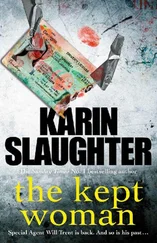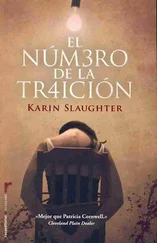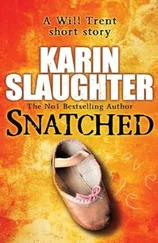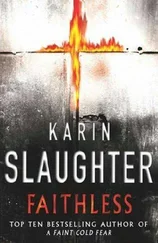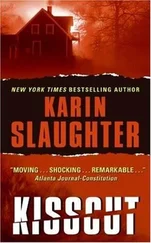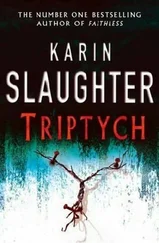But certainly he admitted that numbers could be massaged.
He collected massage examples like a connoisseur. He observed some of them from afar. The 999 stuff, for instance. He knew how the books were cooked. Switchboard operators were required to be a little inexact with their time-keeping. When it was noon out there in the real world, it was four minutes past noon inside the emergency switchboard. When a sector car was dispatched to an address, it would radio its arrival when it was still three streets away. Thus, a slow twenty-minute response time went into the books as a decent twelve minutes. Everybody won.
His approach to his own numbers was more sophisticated.
His major intellectual preoccupation was parsing the inconvenient balance between his productivity and his clearance rate. For any copper, the obvious way to enhance his clearance rate was to accept no cases at all, except the solid gold slam-dunks that had guaranteed collars at the end of them. He explained it like a Zen master: Suppose you have only one case a year. Suppose you solve it. What's your clearance rate? One hundred per cent! I knew that, of course, because I was comfortable with simple arithmetic. But just for fun I said, OK, but suppose you don't solve it? Then your clearance rate is zero! But he didn't get all wound up like I thought he would. Instead, he beamed at me, like I was making progress. Like I already knew the dance steps. Exactly, he said. You avoid the cases you know you can't solve, and you jump all over the cases you know you can solve.
I should have spotted it right then. The cases you know you can solve. But I didn't spot it. I was still inside the box. And he didn't give me much time to think, because he rushed straight on to the main problem, which was productivity. Certainly major points could be scored for a 75 per cent clearance rate. That was obvious. But if you achieved that mark by clearing three cases out of four, you lost major points for a lack of productivity. That was obvious, too. Four cases a year was absurdly low. Forty cases a year was low. In North London at that time, each detective was looking at hundreds of cases a year. That was Ken Cameron's big problem. The balance between productivity and clearance rate. Good productivity meant a bad clearance rate. A good clearance rate meant bad productivity. He said to me, See? Like the weight of the world was on his shoulders. Although that was a misinterpretation on my part. He was really saying: So I'm not such a bad guy, doing what I'm doing. I should have seen it. But I didn't.
Then, still in his Zen master mode, he told me a joke. Two guys are in the woods. They see a bear coming. 'Run!' says the first guy. 'That's ridiculous,' the second guy says. 'You can't run faster than a bear.' 'I don't need to run faster than the bear,' the first guy answers. 'I only need to run faster than you.' I had heard the joke before, many times. I suppose I paused a moment to remember who had told it to me last. So I didn't react the way Cameron wanted me to. I saw him thinking fast track training college wanker. Then he regrouped and explained his point. He wasn't looking for extremely high numbers in and of themselves. He was just looking to beat the guy in second place. That's all. By a point or two, which was all that was necessary. Which he could do while maintaining an entirely plausible balance between his clearance rate and his productivity.
Which he could do. I should have asked, how exactly? He was probably waiting for me to ask. But I didn't.
I found out how the day I met a prostitute called Kelly Key and a madman called Mason Mason. I met them separately. Kelly Key first. It was one of those perceived disadvantage things. Truth was, North London had a lot of prostitution, but not nearly as much as the West End, for instance. It tended to be of a different nature, though. It was definitely more in-your-face. You saw the hookers. Up west, they were all inside, waiting by the phone. So I was never really sure exactly what the locals were up in arms about. That their hookers were cheaper? That they wanted prettier girls? Or what? But whatever, there was always some street-clearing initiative going on, usually in the northern reaches of Islington and all over Haringey. Working girls would be dragged in. They would sit in police stations, looking completely at home and completely out of place all at the same time.
One morning we got back from the canteen and found Kelly Key waiting. Ken Cameron evidently took a snap decision and decided to use her to teach me all kinds of essential things. He took me aside and started to explain. First, we were not going to write anything down. Writing something down would put her in the system, which would aid our productivity, but which would damage our clearance rate, because solicitation cases were very hard to make. But, the longer we concealed our indifference, the more worried old Kelly would get, which would result in some excellent freebies after we finally let her go. A cop who pays for sex, Cameron told me, is a very bad cop indeed.
Bad cop. I suppose, in a relative way.
So I watched while Cameron harassed Kelly Key. It was late morning, but she was already dressed in her hooker outfit. I could see a lot of leg and a lot of cleavage. She wasn't dumb enough to offer anything off her own bat, but she was heavily into doing the Sharon Stone thing from Basic Instinct. She was crossing and uncrossing her legs so fast I could almost feel the disturbance in the air. Cameron was enjoying the interview. And the actual view, I suppose. I could see that. He was totally at his ease. He had the upper hand, so definitively it was just an absolute fact. He was a big man, fleshy and solid in that classic police-man way. He was probably forty-something, although it's hard to be precise with guys who have that sort of tight pink flesh on their faces. But he had his size, and his badge, and his years in, and together they made him invulnerable. Or together they had, so far.
Then Mason Mason was brought in. We still had an hour of fun to go with Kelly, but we heard a disturbance at the front desk. Mason Mason had been arrested for urinating in public. At that time we called the uniformed coppers woollies, because of their wool uniforms, and on the face of it the woollies could handle public urination on their own, even if they wanted to push the charge upwards towards gross indecency. But Mason Mason had been searched and found with a little more folding money in his pocket than street people usually carry. He had £90 on him, in new tenners. So the woollies brought him to us, in case we might want to try a theft charge, or mugging, or even robbery with violence, because maybe he had pushed someone around to get the cash. It might be a slam-dunk. The woollies weren't dumb. They knew how we balanced clearance rate with productivity, and they were self-interested too, because although individual detectives competed among themselves, there was also an overall station number, which helped everybody. There was a number for everything.
So at that point Cameron put Kelly Key on the back burner and Mason Mason on the front. He took me aside to explain a few things. First, Mason Mason was the guy's actual name. It was on his birth certificate. It was widely believed that his father had been drunk or confused or both at the Registry Office and had written Mason in both boxes, first name and surname. Second, Mason wasn't pissing in public because he was a helpless drunk or derelict. In fact, he rarely drank. In fact, he was pretty harmless. The thing was, although Mason had been born in Tottenham – in a house very near the Spurs ground – he believed he was American, and believed he had served in the United States Marine Corps, as part of Force Recon, who called themselves the Snake Eaters. This, Cameron said, was both a delusion and an unshakeable conviction. North London was full of dedicated Elvis impersonators, and country and western singers, and Civil War re-enactors, and Omaha Beach buffs, and vintage Cadillac drivers, so Mason's view of himself wasn't totally extraordinary. But it led to awkwardness. He believed that the North London streets were in fact part of the ruined cityscape of Beirut, and that to step into the rubble and take a leak against the shattered remains of a building was all part of a Marine's hard life. And he was always collecting insignias and badges and tattoos. He had snake tattoos all over his body, including one on his chest, along with the words Don't Tread On Me.
Читать дальше

